Spanish diplomats agree on the need for Biden's triumph
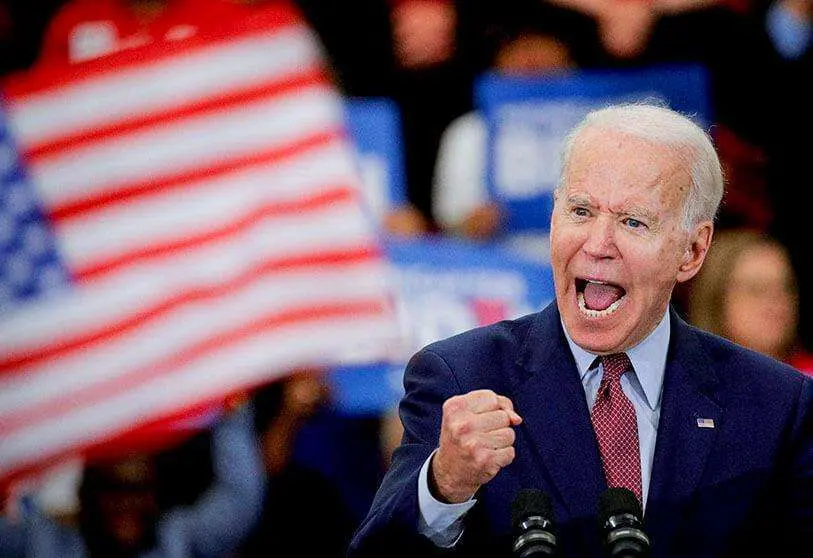
After a most dramatic, aggressive and novel election campaign due to the coronavirus pandemic, the US elections are just around the corner. The polls give the Democrat Joe Biden as the winner against the Republican Donald Trump, but nothing is clear since, as happened in the previous elections, Trump took the victory despite not having the majority of votes in Congress.
To explain the keys to the future of the United States, Atalayar and Compolider have organised a debate with three of the Spanish ambassadors with most experience in this field. With the presence of Javier Rupérez Rubio, Juan Antonio Yañez Barnuevo and Inocencio F. Arias, those attending the event were able to understand how the campaign is developing just a few days before the vote.
The coronavirus, the economy, the controversy of postal votes, multilateral relations and social clashes within American society have been the main key issues to understand the future of the country. Participants had the opportunity to ask questions about China, Taiwan, the violence of the American population or the possibility of the United States achieving 'failed state' status.
It was a lively and interesting debate that brought together all kinds of opinions and reached a clear conclusion: "choosing Biden would be ideal", as stated by the ambassadors interviewed.
The event began with the presentation of Allende Martin, the CEO of Compolider. The moderator reminded those present that on 3 November the 538 members of the Board of Directors will be elected, who will in turn elect the new President.
Allende also wanted to stress that "this campaign has been totally different, it has caught us all by surprise". The 'Marketinian' campaigns to which we were accustomed have had to change their modus operandi, "this time there have been no big events with human warmth, the Republicans celebrated their big convention in the White House and the Democrats in small and cold events," explained the moderator.
Compolider's CEO gave a very useful piece of information and that is that with the death of Democratic Judge Ruth Bader Ginsburg, Trump has been forced to appoint ultra-conservative Amy Coney Barrett. "And if the president contests the election, she could be the last person to decide who wins," Allende said before beginning questions to the speakers.
Clear consensus on the final result: Biden could win this election
All three speakers had a clear and unanimous response regarding their interest and the likelihood of Joe Biden's promotion to the Oval Office. But Javier Rupérez, Spain's ambassador to the United States to the CSCE and NATO, wanted to stress that "not all Americans are going to vote". In order to vote in the United States, you have to register and this is not taken into account when it comes to registering votes. In 2016, less than half of the US population was registered. "There is enough data to identify that Biden is going to get the 270 pledges. But anything can happen," the ambassador said.
Likewise, Inocencio Arias, former Secretary of State and Spanish Ambassador to the UN, believes that Biden will achieve favourable results. However, he wished to emphasise that "Trump has also had acts to assess, such as military non-intervention in external countries during his mandate". Mr Arias considers that Biden will win the popular vote but that Trump could win the electoral vote, "as happened with Hillary Clinton, although this time Biden has a greater advantage", he stressed.
For his part, Juan Antonio Yáñez Barnuevo, former Spanish ambassador to the UN and former foreign affairs secretary, wanted to give an account of a fact that is not being counted much. "The Americans are already voting", wanting to explain that the elections have already begun. The date set by the Constitution is 3 December, but owing to the pandemic in many states millions of citizens have already voted in advance both in person and by post. "We can say that on 3 November half of the people waiting to go to the polls may have already voted," explained Mr Barnuevo.
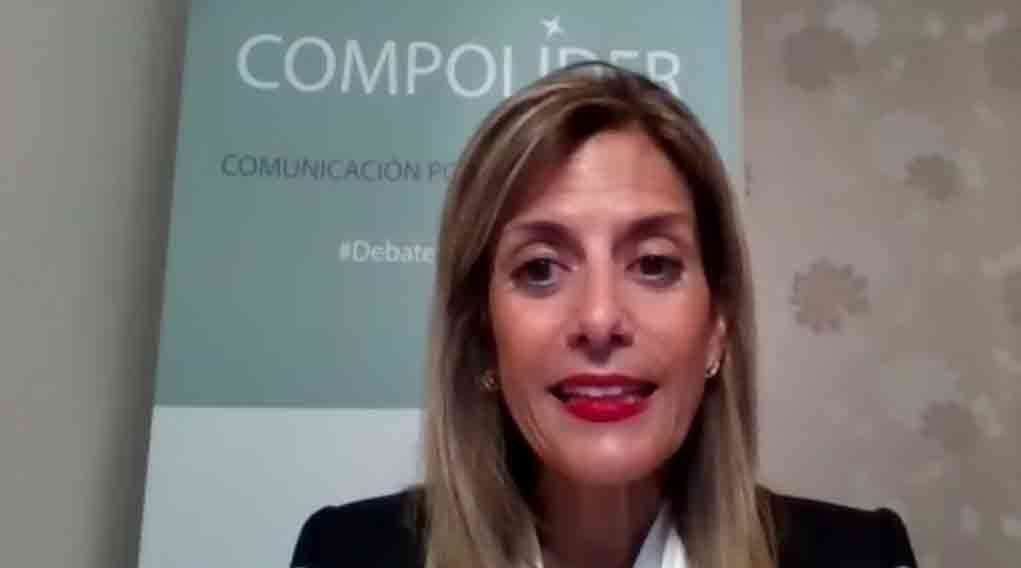
The first debate was very controversial due to the large number of attacks and insults and the lack of proposals and electoral dialectics. For the speakers in the debate organised by Atalayar and Compolider, the debates have lost their influence among the undecided.
"Debates do not normally help to tip the final result, perhaps with Nixon and Kennedy in their day, which were the first debates, but this is no longer always the case," Arias pointed out. Over the years it has become clear that many of the winners in the debates have not won the elections and vice versa.
Former ambassador Barnuevo defended Arias' idea and added that this week Obama will begin to accompany Biden in the electoral events. "This can really have an influence, especially on the African-American vote," he said.
"Trump has the feeling that he is going to lose, which is why he will show his most violent face in the last few days and do everything possible to disqualify Biden," added Rupérez.
Throughout the campaign the news has focused on the pandemic and how the candidates respected, or did not respect, the safety measures recommended by the health authorities. "The main concern of Americans right now is the pandemic, as polls show," Barnuevo stressed.
This has brought back into the debate the previous health system, the famous 'Obamacare' that Trump sabotaged as soon as he came to power. Despite the fact that the management of the American economy is well accepted by the Americans, Rupérez is clear: "Trump lost the elections the day they announced that he had a coronavirus".
Although this is not the only reason, the speakers wanted to stress Trump's denialist stance during the pandemic and "although he wanted to save his image after the disease as a surviving hero, it is not going to work," Rupérez reiterated.
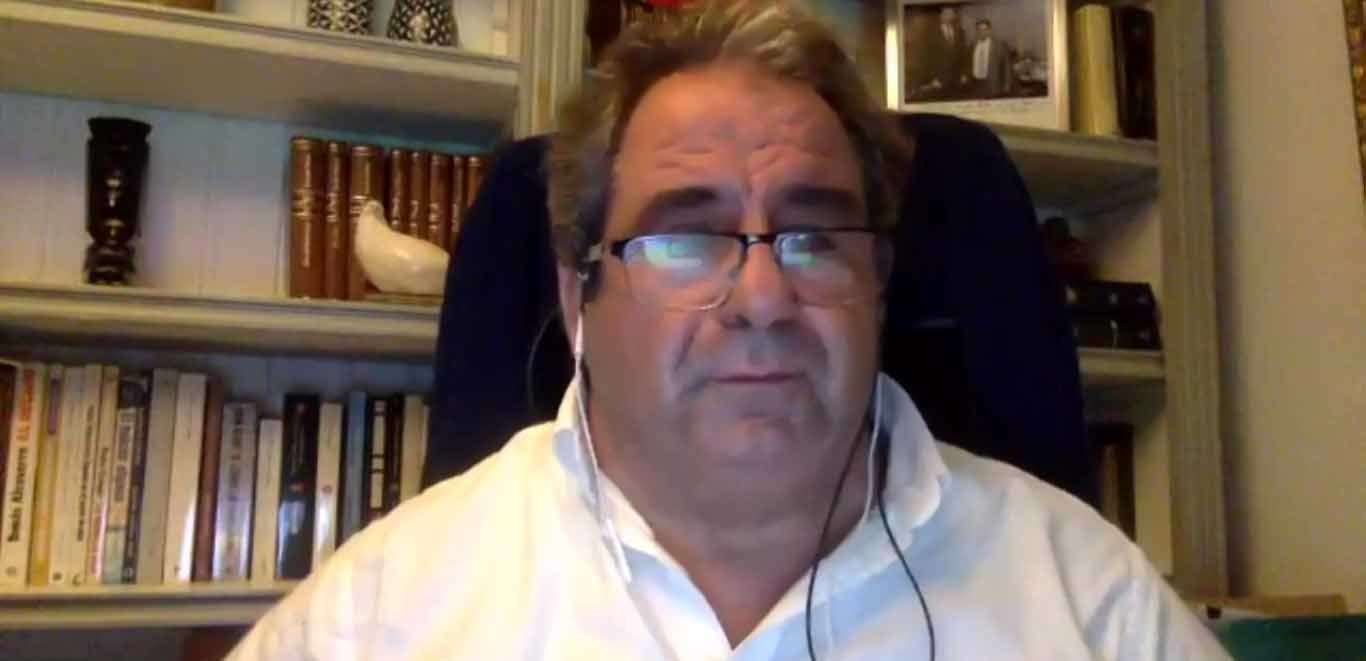
Javier Fernández Arribas, the director of the newspaper Atalayar, between two shores, has raised the question that many people are asking lately. "With these elections, is the game on for the world to continue to be governed by the rules that the United States set?
According to his previous answers, everyone agreed that the return of a Democratic government would calm foreign relations and introduce a certain rationality into US diplomatic relations.
However, the speakers wished to stress that it has been a long time since the United States' rules ceased to be key to the world. "Trump has even threatened to leave NATO," recalled Arias. "But with Obama, the US focus was already beginning to shift away from Europe," the speaker reiterated.
Barnuevo goes back to the Cold War. "At the time, the United States saw that it had to attend to its internal problems and this became more acute with the Obama era. But it has never abandoned bilateral dialogue and good relations, unlike Trump", the former ambassador said.
Even so, as Arias announced at the beginning of the debate, the speakers wished to acknowledge that no international conflict had arisen during Trump's term of office. "With Kim Yong Un he was kissing! And with Iran he has not ended up making his threats materialise; who knows if he will change his policies in a second term", reiterated Barnuevo.
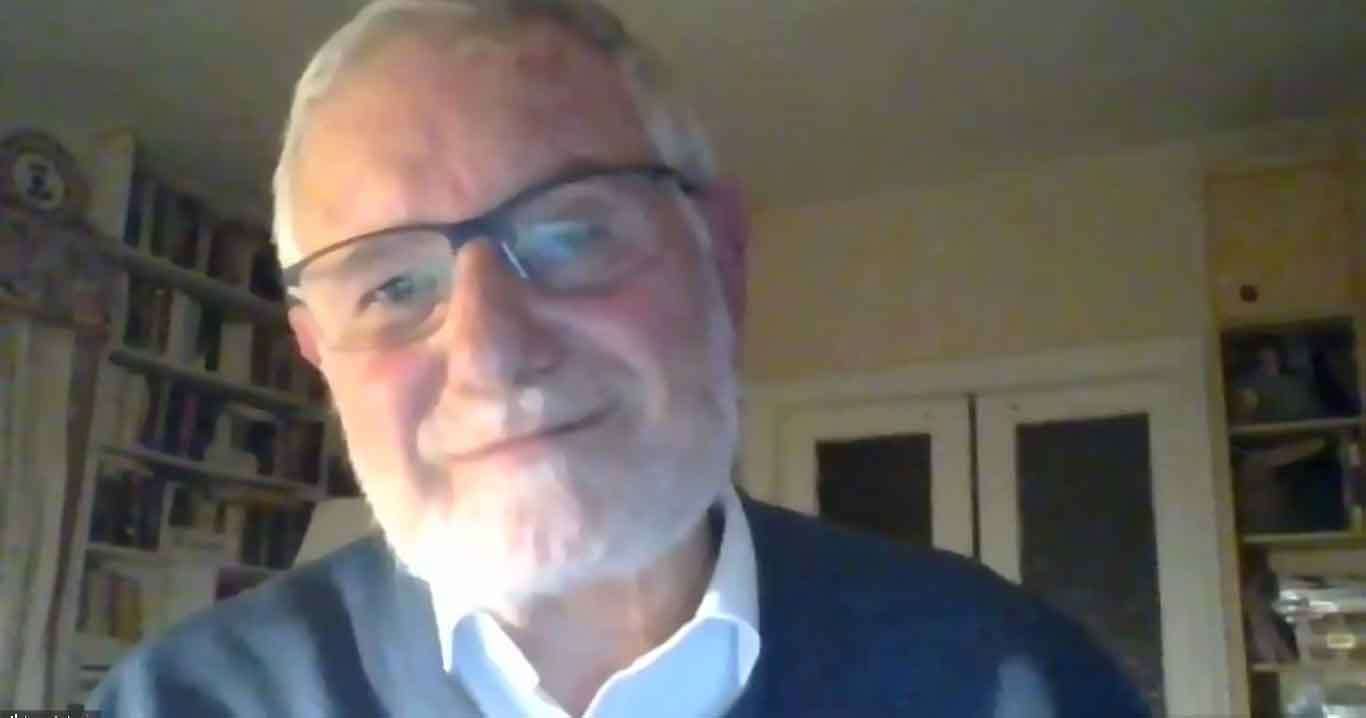
Donald Trump has already announced that if the result of the elections is not favourable to his re-election he will contest the elections. This has raised serious questions about what the next steps would be and how the impact of such an announcement would reach the US population.
Rupérez has explained the process very simply. He explained that there could be challenges and appeals in the bodies of each state. This situation could delay the final result of the elections by days or weeks. And, ultimately, it would be the Supreme Court that would make a decision.
"The Constitution states very clearly that the results must be declared by December and the president must be sworn in on 20 January", Mr Rupérez explained.
Like the chronicle of a death foretold, Mr Arias wished to comment that if Trump were not sure he would lose he would not say he was going to contest the elections. "There is a possibility that on 20 January there will be no president. In this case it would be the Congress and the House of Representatives that would have to make the decision in a very strange vote in which each state has only one vote," he added to complete the Barnuevo process.
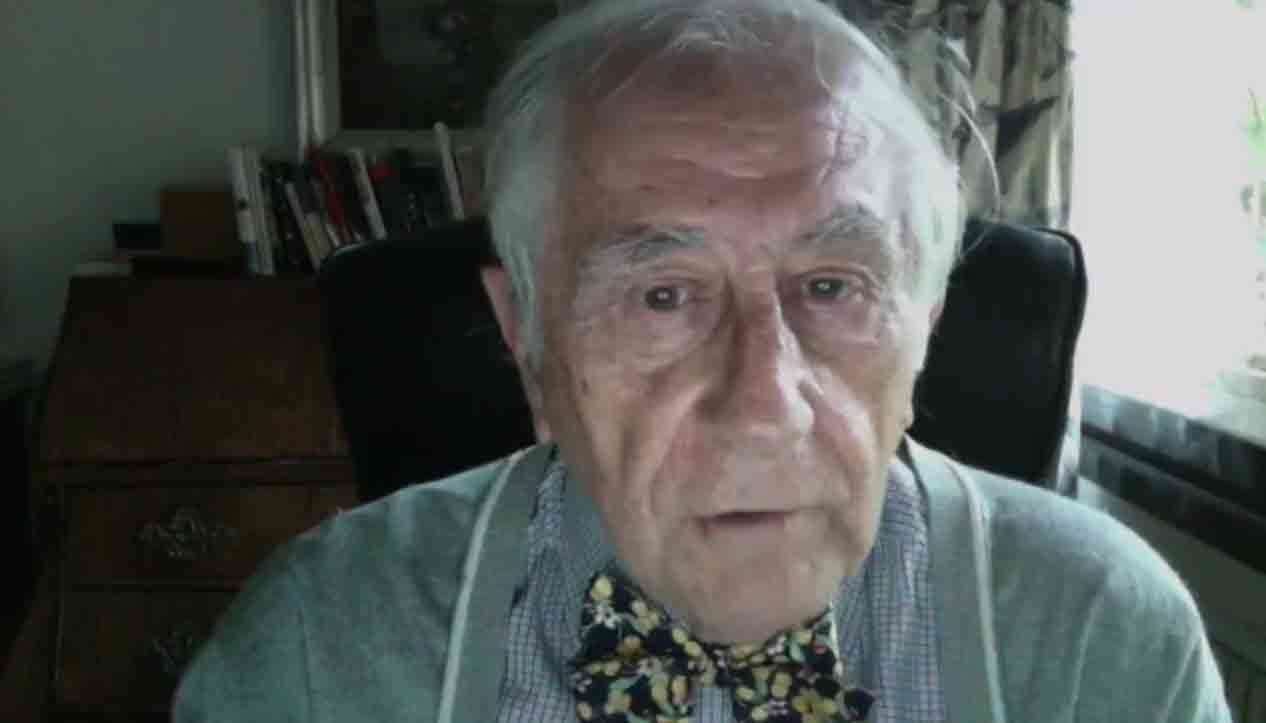
During the round of questions, the attendees were able to ask various concerns that were interesting in understanding where the United States stands internationally and how these elections could change the landscape.
The question of whether China could surpass the United States' GDP has given rise to some interesting data. Rupérez stated that it will take a long time for China to surpass the American GDP, while Barnuevo added that "according to the IMF, China's GDP, if measured in 'purchasing power parity', overtook the United States in 2014".
What if the United States declares itself a failed state? The question outraged the speakers, who agreed that although they are very polarised and have many problems, they are far from being a failed state. "The United States has institutions that are solid enough to withstand any onslaught," explained Rupérez.
The speakers focused on the existence of armed groups, such as those in Michigan, where the kidnapping of the state governor Gretchen Whitmer was planned, or on the citizens who call themselves 'volunteers' and are armed, acting as citizen police.
The conflict in the Asian Sea has emerged as a coalition through another question that raised the possibility of an alliance between India, Korea, Japan and the United States to defend Hong Kong and Taiwan. Arias wanted to take the heat out of the issue of independent cities, explaining that "if China continues with its expansionist policy and installation of military bases in the middle of the sea, these alliances will be made on their own".

However, Rupérez wished to stress the issue of Taiwan. "If China acts violently on the territory, I believe there would be a war. And the United States would have no choice but to act accordingly", the speaker explained, adding that "this would have unforeseeable consequences with a high probability of worldwide contagion".
In conclusion, Mr Allende thanked all the speakers for their presence, as well as those present for their questions and interest. The aim of the event was to analyse the situation of the campaign, the errors and successes, the state of the candidates, the US electoral system, the relevance of the 'swing states' and the latest data from the surveys carried out in the United States to try to guess who will be the next occupant of the Oval Office.
The speakers ended by agreeing on the possibility that Biden will take over the results and Trump will become the third president in American history not to repeat a term in the White House. Tomorrow, 22 October, the last debate will be held and, in less than thirteen days, the elections will shed light on all the questions that have been raised during the event.








